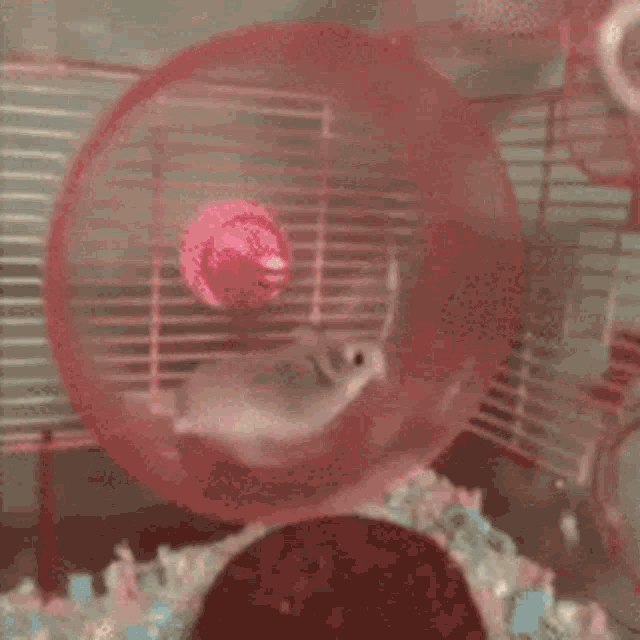Stars in their eyes
A public service announcement for newbie authors of English fiction (in South Africa mostly)
Update: Since I wrote this post, I’ve had even more depressing news about the publishing industry in South Africa and so I’ve updated the figures to reflect this.
This is a very long bookish sort of post, so if you’re not into writing and publishing books or you’re not one of those readers who love reading about authors and their writerly lives because you’re secretly a closet writer, or you’re not in love with a newbie writer who’s about to publish, this post probably won’t be for you.
Maybe there’ll be some universal truths embedded in the story that you, a not-writer, might be interested in. Who knows. But I don’t mind if you drop off at this point.
It’s a very long, very specific post and one that I’ve been wanting to write for a while because I like to think of it as a very necessary, and frankly charitable, public service announcement.
Because knowing this information before embarking on a publishing journey will save you and your loved newbie author a lot of heartache and energy.
So, calling all newbie writers and soon-to-published authors, listen up.
Writing a book is one thing, publishing it is a completely different thing. If the former was a drag for you, you better buckle up for the latter.
The dream
So here’s the dream I come across time and time again in conversation with new authors.
You’ve found your agent or publisher, your manuscript has been accepted (hurrah!), and you’re about to be a star. In this post, we’re skipping past submissions hell, we’re sweeping by the editorial process, we’re done and dusted, the book is being printed, and it’s soon to be in the world.
And what a world it will be!
Your launch will be attended by the hundreds of people who follow you on Instagram, your book will fly off the shelves, those hundreds of people will read your book and leave hundreds of reviews which will inspire hundreds, if not thousands, more people to buy your book and leave reviews, and every day you’ll get a little bump of recognition and validation about what an astonishing new voice you are and before long you’ll be enjoying your royalty checks and accepting invites to literary events and then the next minute Netflix is dropping you a line saying they want to make a movie of your book and you’re Hank fucking Moody Californicating up a storm on Kloof Street. Your life as a best-selling author is On Its Way and you’re riding that high like Raoul Duke down the fucking highway of life.
Or, you know, maybe your idea of success is more austere than that and you’re winning serious awards and enjoying invitations to “salons”, rubbing shoulders with the local literati who smear themselves all over you as the bright new thing.
Either way: life is grand, you’re a star, you’re about to quit your day job and write a bestselling piece of art once every five years, and so on and so on…
Well. Being an astute sort of person, I guess you’ve figured from the tone of this tome that that this is not what is likely to happen.
An aside
Now, first off, let me just preface this by saying this is the South African reality and of course all of the above really could happen for you. Publishing’s a crapshoot and every aspiring author will have one semi-miraculous story of some new author they heard about who hit the big time on their very first roll of the dice.
These things do happen. It’s just that they almost never happen, and pinning your mental health to a miracle is not a good life choice.
And when your heart gets broken you might want to not continue writing and that would be very sad, because writers get better as they write. And stopping halfway through your authory life mentorship because of the crushing sense of failure you might feel after your first experience of publishing would do you and your storytelling a great disservice.
So. Better to arm yourself with reality and if it turns out better for you, then you’ve lost nothing and gained some gratitude.
Right. Here’s what your first foray into being locally published is most likely to look like.
The reality
You have your book in your hands. Your publisher has sent you your eight author copies. You can do your unboxing video. That’s nice and it’s meaningful for all sorts of personal reasons. Then you have a launch where some people will come, mostly your friends, so the broader your network the better your crowd (Millennials do very well in this regard), and then your launch is over.
The end.
That’s it. Congratulations you’ve published a book. You’ve got about two months in which your book will be a thing for your publishers.
Next!
Oh okay, maybe there’s an invitation to a book festival or two, but this isn’t guaranteed.
If your publisher is of the bigger South African publishing houses – PanMac, PenguinRandomHouse, NB – your book might be sent to book bloggers who will do a little video about it. Maybe they get it on a radio show, maybe into a magazine (if you supply the pictures and the copy), maybe they even fly you up to Joburg or Durban for a launch.
If you’ve done enough author branding, maybe the book bloggers like you and you get mentioned a lot.
Advertising? Ha. For the average author, publishers big and small rely on their own book platforms and networks, the author’s social media following and, if the book is that way inclined, some hope of it being picked up by universities, schools and libraries. I know authors who have spent thousands on their own PR.
Basically: As an English fiction author, unless you’re guaranteed to sell at least a whole, maybe, thousand-and-something copies because you’re a big name locally, a publisher won’t spend on advertising. (I enjoyed Tim Grahl from Story Grid who once posted a newsletter with the title of something like: ‘A guaranteed way to get published!’ And then in the body copy it was like ‘Be a celebrity.’)
This is not a South Africa thing.
Internationally, the Big 5 only throw marketing dosh at books that will sell (like those celebrity names) and for the rest, newbie authors get thrown like spaghetti onto a wall and whatever sticks with at least 10 000 sales might get signed again. Real marketing only becomes a thing if you sell a coupla tens of thousands more after that.
Reviews? Forget about it. The media to support that barely exists in this country and we don’t have, in mass, the kind of readers who flock to Goodreads or Amazon to leave reviews (and our publishers don’t load books to places like NetGalley to exchange free reads for reviews).
Besides, how often do you leave a review for books?
On the topic of Amazon, if you thought you could reach international readers and all your friends overseas, sorry for you, but most local publishers don’t make their books available in print or e-book anywhere but South Africa, and if they do make it available as an e-book it’s usually priced the same as a paperback which for most people (including me, honestly) feels like a rip.
And on the topic of book sales. Publishing is a business and your book is the product. Some products sell better than others.
I wish more new authors would understand that poor sales are not a reflection on them or their talent, rather on what the market wants. And our market is small and particular and not inclined to kuns.
In this country, it’s non-fiction first, then it’s international bestsellers (which the local publishers get the rights to distribute in this country), then it’s Afrikaans fiction and then, after a very long stretch, local English fiction – general stuff, genre stuff, fun stuff … the deep and meaningfuls will sell less, the strange and zany, even less.
Condolences if your vibe is poetry.
Also, South Africans are generally poor and books are a luxury expense no matter how important we think they are.
Remember that baseline of 10 000 copies for book sales with the Big 5 overseas? You’ve got to think much, *much* smaller for South Africa.
I’ve had new English fiction authors be surprised to find that selling anything over 1 500 copies of their mass-appeal book is considered next-level, shoot-the-lights-out great and that they should rather expect somewhere between 300 and 600 sales. Max. Some are surprised to hear that smaller publishing houses print batches of only 300, if they’re being very optimistic.
Publishers will print *just enough* to sell what will cover the costs of producing your work and make a profit. And if they have to cut costs to make that profit they will – so out goes advertising and out goes development editing (and out goes launches for some). They’re a business, after all.
And like most businesses, their people skills are not always the best. Once your two-book deal is done you might never hear from them again. So long and thanks for the fish.
Next!
In short: You’re not likely to get the reviews that will satisfy you, you’re not likely to make many sales, you’re not going to make a lot of money, you’re not likely to see your name on a billboard, you’ll rarely get to talk to readers, you’ll quickly be overshadowed by the next bright young thing, and you’ll almost definitely not get the validation you so desperately need. (I don’t need ‘I’ language here bitches, we all know we write because no one listened to us as children.)
So why do it
Because you’re a crazy little weirdo driven by hope and fuelled by a kind of manageable psychosis. And you can’t not.
But you’re also a sensitive little weirdo and prone to heartbreak (only those writers so effortlessly successful can attest to the opposite), and I don’t want the hard realities of publishing to be so shocking and debilitating that you can’t produce your second, third, fourth, fifth book.
So you got to know what to expect.
Know the parameters of where you’re publishing and how what you’re publishing fits into that place.
If you’re in South Africa that reader base is small, particular about its tastes, and not used to applauding. And if you’re in a viable economy such as the US or UK you’re ‘competing’ with a thousand thousand other better writers in a very complex system with deep publishing roots, and readers who will eat you alive.
Know what to expect and then keep going.
Do you really want The Big Time?
And then there are the realities of what it really means to be a ‘successful author’.
Let’s say that we choose the general meaning of that phrase and you’re picked up by a Big 5 publisher – Penguin Random House, HarperCollins, Simon & Schuster, Hachette Livre (Hachette Book Group), and Macmillan – or one of their imprints.
Let’s say you’re making some actual money, which means you’re probably writing mass-appeal general commercial or genre fiction (thriller, romance, SFF and so on, serialised all the better). You’ll only have a career as long as you can honour your contract, pump a book out every year, earn out your advance, never veer from the format, appease the number crunchers, and align with reader data. The minute you fall off that wagon you’re done. Thanks for your piece of art, but no thanks.
There are some writers who excel under this pressure. Most find their mojo draining away. It will benefit you, as it did me, to really see yourself into that position and ask yourself if that is the kind of life you want anyway?
Writing a book is for you
This is why any author coach or any seasoned author talking about book publishing will say stuff like ‘writing the book must be the whole of the reward’.
It is the process that you undergo in yourself – whether it’s for deep personal revelation or soothing or connecting with your muse or just for fun – that must be where you find your joy and fulfillment. Where you find success in honing your craft.
Even if it’s *just* because you’re onto something good and churning out some truly more-ish fiction that publishers and readers gobble up and throw money at you for.
It has to be for you and your process.
Because they’re fickle. Readers and publishers. You can’t rely on them to validate you. Or make you feel like your work is good enough. Only you can do that. You and the trickster gods that led you to this place.
So when the publishing experience gets poo – and it will get poo – just remember it’s not you. It’s not personal. It’s the system. It’s business. It’s data.
And then write your next book. And your next one.
Until you’re dead.
(But at least you’ll die happy!)
Okay, that’s me.
Thanks for reading (if you actually managed this far).
Love and light,
t











That's so sad, and not a guaranteed thing, and does feel like absolute luck of the draw :(
Needed this reminder this week. Thank you